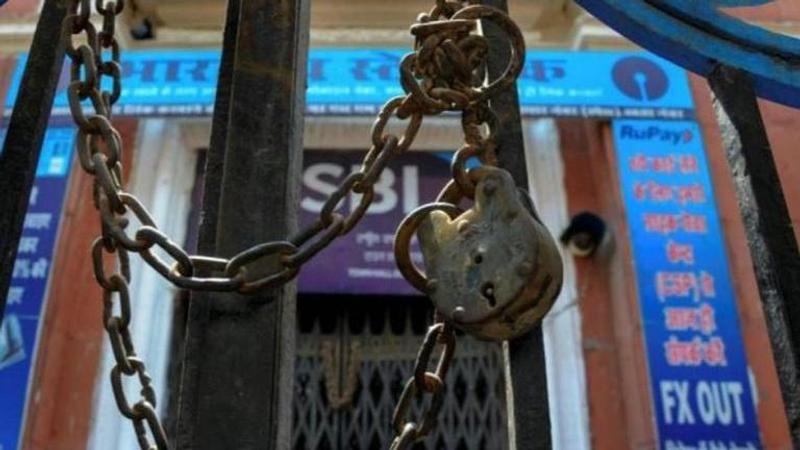Published 21:44 IST, January 31st 2020
Bank employees unions go on 2-day strike; troubles likely on salary day
Bank employee unions went on a two-day strike on Friday to press for wage revision and other demands, hitting services like cash deposits, withdrawals and cheque clearances across the country.

Bank employee unions went on a two-day strike on Friday to press for wage revision and other demands, hitting services like cash deposits, withdrawals and cheque clearances across the country. All India Bank Employees' Association claimed that around 31 lakh cheques amounting to Rs 23,000 crore remained uncleared across the country on the first day of the strike.
Various bank branches were closed in many parts of the country affecting services like cash deposit, withdrawal, cheque clearances, instrument issuance and loan disbursement. ATMs of many banks across major parts of the country went dry, causing trouble to people on the last day of the month.
"In the clearing grids in Mumbai, Chennai and Delhi, about 31 lakh cheques worth about Rs 23,000 crore could not be cleared due to the strike," All India Bank Employees' Association (AIBEA) general secretary C H Venkatachalam said.
Close to 10 lakh bank employees and officers of various public sector banks, some old generation private banks and a few foreign banks are on a two-day strike, starting Friday, after the negotiation on wage revision under 11th bipartite settlement failed, unions said. However, private sector lenders like ICICI Bank and HDFC Bank were operational.
On Saturday, bank branches will continue to remain closed, adding to woes of the public on the salary day. With this strike, banks would be closed for three days including Sunday. Banks will open only on Monday, February 3. The strike call has been given by the United Forum of Bank Unions (UFBU), an umbrella body of nine bank unions, including All India Bank Officers' Confederation (AIBOC), All India Bank Employees Association (AIBEA) and National Organisation of Bank Workers (NOBW).
UFBU decided to go on strike after its discussion with Indian Banks Association (IBA) on wage revision failed in the recent round of negotiations held on Thursday. During discussions, the IBA on Thursday improved their offer to 12.5 per cent, but this was not acceptable, the unions said.
"The bank managements and IBA did not come forward to settle the demands with a reasonable increase in salary looking to inflation and heavy workload on the employees," UFBU said.
However, the IBA in a statement said despite the revised offer of up to 19 per cent hike, including performance linked incentive, made by it during the meeting on Thursday, the unions decided to go ahead with the all-India bank strike. Wage revision for employees of public sector banks is pending since November 2017. In the past wage settlement, which was for the period November 1, 2012, to October 31, 2017, employees got a hike of 15 per cent.
IBA also rejected the unions demand for five-day banking saying, "It is known to all that the economy of the country is going through testing times. Banks being the principal players in economic development, cannot afford to provide lesser number of working days for banking activities." The banking lobby said the country already has one of the highest numbers of public holidays and adding 26 more holidays would create more problems for the public.
"IBA is claiming five-day banking is not possible due to the tough economic situation in the country. Then how RBI, Department of Financial Services (DFS), NCLT, Central Vigilance Commission (CVC) and other central and state departments are working for five days in a week? Are these institutions not worried about the economic slowdown?" asked a section of agitating bankers.
Updated 21:44 IST, January 31st 2020




